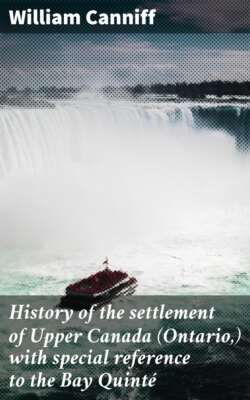Читать книгу History of the settlement of Upper Canada (Ontario,) with special reference to the Bay Quinté - William Canniff - Страница 25
На сайте Литреса книга снята с продажи.
NEW ENGLAND.
ОглавлениеOf the aforementioned colonies, they all had received and had secured to them by charter, from an indulgent mother country, governments of the most liberal nature. Civil and religious liberty were fully enjoyed. Says Mr. Sabine: “Virtually, republican charters; subject only to the appointment of a governor on the part of the Crown. Every colony was, practically, a State within itself; and it is a suggestive fact that the very earliest assertion of legislative superiority on the part of the mother country only operated negatively, by forbidding every colony to make laws repugnant to those of England.”
Certain of the British colonies were, together, called “New England,” and since the Independence they are known as the New England States. They consist of New Hampshire, Vermont, Massachusetts, Rhode Island, Connecticut, and Maine, which was then a colony of Massachusetts. This region was granted by James I. to the Plymouth Company in 1606. It was called North Virginia, but it was changed some years later, before it was actually settled. It was the people of these States to whom the term “Yankee” was originally applied; and now, in the United States, this epithet is used solely in reference to these States; but in Canada and England the word is applied very generally to all Americans. The origin of the word Yankee is probably traceable to the Indian appellation “Yengee,” for English, or Anglais, after the French.
